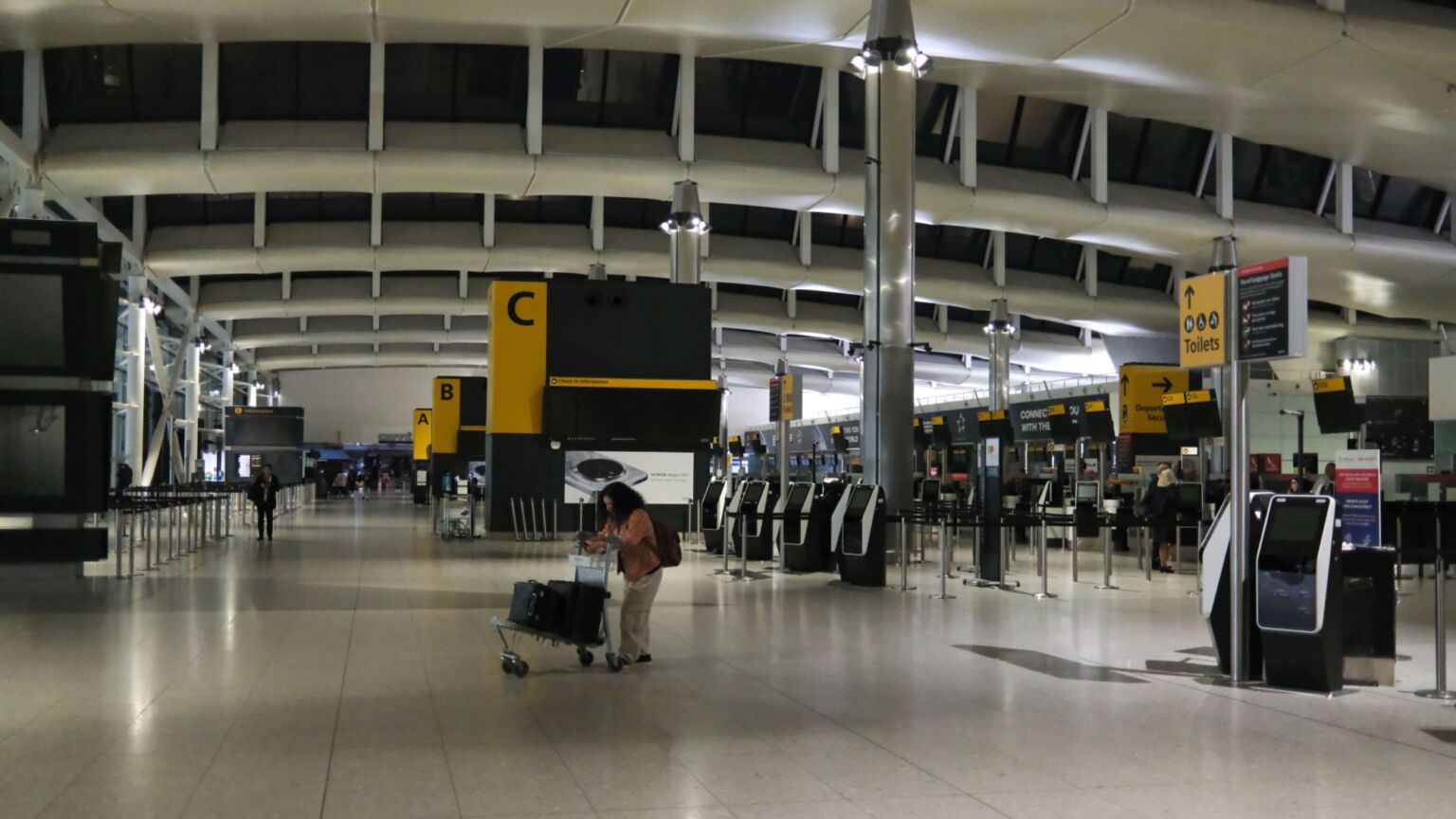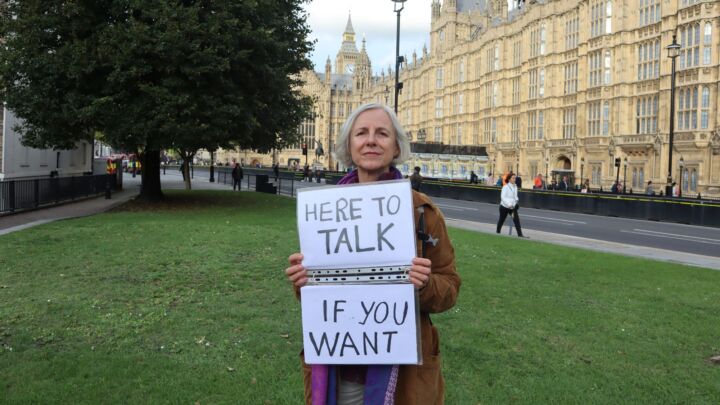The Heathrow shutdown: a disaster waiting to happen
The resilience of our national infrastructure has withered as governments have chased environmental fads.

Want to read spiked ad-free? Become a spiked supporter.
Heathrow, Europe’s busiest airport, was shut down and plunged into darkness on Friday. Over 1,000 flights were cancelled and the plans of hundreds of thousands of passengers were thrown into disarray. And it was all because of a fire at an electrical substation three miles away in nearby Hayes. Heathrow relied upon this substation to power most of its critical services. Without it, nothing worked.
Some were quick to suspect foul play, with fingers pointing in Moscow’s direction. But the police have said there is no indication of sabotage, and the security services have said the incident is now being treated as ‘non-suspicious’.
So it certainly doesn’t look as if it was a foreign and deliberate hand that caused the airport to shut – even if the Russian secret services will have gained very useful intelligence from the sequence of events that ensued.
The reason for the Heathrow shutdown seems to be far more prosaic. There was an accidental fire at a voltage transformer at the Hayes substation. The lack of fully functioning back-up transformers to compensate for one going down, plus the wider lack of fallback systems and resilience in UK infrastructure, turned this one fire into a massive pain for hundreds of thousands of passengers.
The National Grid’s chief executive has since said that Heathrow had ‘enough power’ from other substations to stay open. But as Heathrow’s chief executive has already said, the problem arose from the difficulty of switching from one substation to another. The infrastructure just wasn’t up to scratch.
Energy secretary Ed Miliband has ordered an investigation, and has issued the standard mantra about lessons needing to be learned. This has been accompanied by a great deal of pontificating about the resilience, or otherwise, of UK electricity networks.
But Miliband’s and others’ bluster about resilience is misleading. The term ‘resilience’ used to refer to the fortitude of engineering systems in the face of adversity – indeed, it might once have been used to describe the grid’s capacity to manage local outages. But today, in a political climate informed by Net Zero, ‘resilience’ has come to be interpreted principally as the protection of the environment against climate change.
The Heathrow shutdown has exposed the folly of this way of thinking. Successive governments have allowed Net Zero to inform their approaches to all aspects of our national infrastructure. Protecting the environment and reaching climate-change targets have been prioritised over the needs of the nation and its citizens.
Heathrow is a case in point. We have been waiting decades for a third runway, but it has been forever postponed in the face of objections from the green lobby and claims it violates our eco-commitments. As a result, we now have an overloaded airport held together with the infrastructural equivalent of rubber bands.
And in the National Grid, we have an incompetent electricity operator presiding over an increasingly complex but fragile system. It’s entirely preoccupied with integrating more and more sources of renewable energy into the grid, rather than keeping the mains on.
The crisis at Heathrow was all too predictable. Successive governments’ climate-change obsession has created a warped set of priorities, as panic about a climate apocalypse in the future eclipsed concerns about network maintenance in the present.
The real lesson of Heathrow is that the British state needs to refocus on what matters – on rebuilding the kind of robust, reliable infrastructure that is essential to modern life. Otherwise, before long, it won’t just be Heathrow that is struggling to keep the lights on.
James Woudhuysen is visiting professor of forecasting and innovation at London South Bank University. He tweets at @jameswoudhuysen










Comments
Want to join the conversation?
Only spiked supporters and patrons, who donate regularly to us, can comment on our articles.